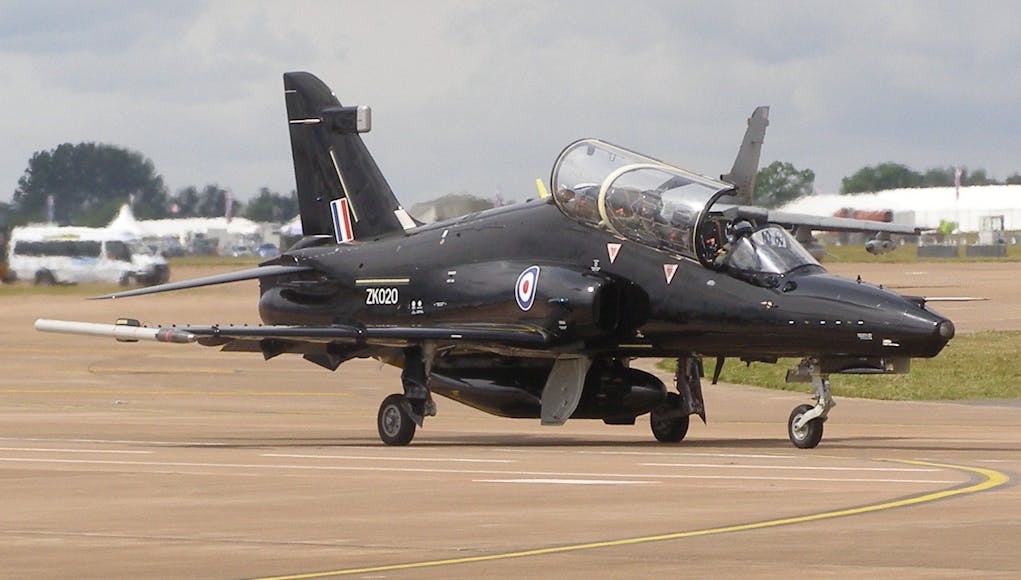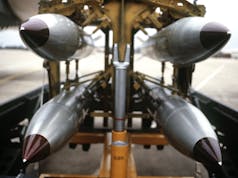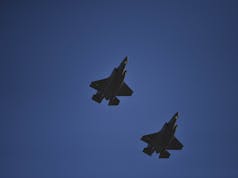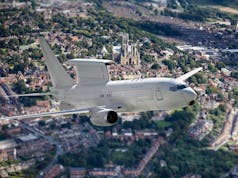It has been confirmed that, following the crash of a Hawk jet last year, ongoing rectification work “will have an impact on UK Fast Jet training output over the next three years”.
UPDATE 20/09/2022 – This article has been corrected. I had incorrectly believed that this current issue was related to an incident last year involving a Hawk T1 aircraft. This issue is not related, and as such, my connection was inaccurate. I apologise.
John Healey, Shadow Secretary of State for Defence, asked:
“To ask the Secretary of State for Defence, what the nature of the issue is with the Rolls-Royce engine on the Hawk jet; and what assessment he has made of the potential impact of that issue on training.”
Alec Shelbrooke, Minister of State at the Ministry of Defence, responded:
“A fault has been identified with the Rolls-Royce/Safran Adour 951 engine, which powers the Hawk TMk2. The fault affects the components contained in the Safran manufactured Module 1 of the engine, also known as the Low-Pressure Compressor. As a precaution, a number of engines have been temporarily removed from service whilst the Ministry of Defence supports a Rolls-Royce/Safran investigation into the root cause and rectification. While this has reduced current aircraft availability, Fast Jet training is continuing at RAF Valley.
Initial assessments suggest the reduction in aircraft availability will have an impact on UK Fast Jet training output over the next three years, but work is ongoing to minimise that impact.”














That’s interesting.
The RAAF Hawk 127 fleet (33 aircraft), has been having engine cracking issues with the earlier RR Mk 871 engine, there was consideration given for a while to retire the fleet early.
But earlier this year a decision was made to replace the Mk 871 engine with the Mk 951 engine from the T2.
I wonder what impact this problem will have on the RAAFs upgrade plans?
https://adbr.com.au/raaf-to-extend-hawk-127-fleet-life/
The Adour is engine is pretty old, yes its had upgrades redesigns but its fundamentally heavy at 800kg. Honeywell F124 is 300kg lighter with the same thrust. The 951 is surely the last iteration.
Like anything: changing up seems simple…..however, things rapidly get complex!!!
If the manufactures can offer a ‘pin-for-pin’ tested replacement it is usually the way to go.
Was the Hawk that crashed in Cornwall a T1 or T2? The problem is with T2 engines yet the aircraft launched from Culdrose, which may mean (but not necessarily) that it was a FAA T1
Yes that lost was a T1 different engine version so not idea hows thats connected to the T2 which is a very different beast and engine. Should have gone for the lighter engine then all would benefit too. Anyway most likely will be replaced by a foreign buy using up foreign currency again and less jobs in the UK. Perhaps we should jump on the NATO training in the USA. at least it works and would save a load of cash too
There is a logic to that. Pilot training pipeline issues soled TICK, complete retirement of Hawk T1 fleet TICK, Red Arrows replacement aircraft becomes Hawk T2 TICK. Presumably ARF instructors would go over and join the NATO training teams.
Do we think RAF fast jet training is superior/differentiated from rest of NATO in any way?
The RAF training meet the standards of NATO as do all NATO states really, its more to do with the scale of it. We train a much smaller number than even just a few years ago for a front line fleet that again is smaller than many other NATO states. Much training has also been passed over the the sims. But there is no real substitute for the real thing. Unless the demand grows then lets close up shop and join others to combine and save us all a load of dosh.
Agree and you on ending the fleets althought the T2’s are not as good as T1’s being so much heavier. The UK does have a new option coming up which will do a lot more for a lot less are we supporting it????
The Reds may end up with a foreign aircraft in future and that really will not do…..
Leonardo have the pilot academy in Italy with some Japanese AF and German AF pilots plus others. Or you can ask them build the M346 in UK 😀
It keeps getting better. Delays with the F35 and now pilot training. A link?
The RAF giving up actual flying as they turn into Drone controllers with their slippers on. Got to question the future of the light blue mob???
So 3 years of sub-contractors raking it in from the coffers of the MOD budget then?
It would be interesting to know how and why a mag chip detector leaked. On Mk151 engines they are a small plug about 40 mm long x 20mm dia, with a knurled grip. They fit into a housing with a bayonet connection which is then twisted by about 1/2 turn to lock them into position. There is also an O ring seal around the body of the detector to seal the engine oil system.
I wonder if the O ring seal came out of its locating groove in the boy of the mag plug?
Had a similar issue many years ago on a Tristar with RB-211-22B engines where one of the maintenance crew refitted a chip detector without the two O-seals. After that the housings and chip detectors were modified so that they couldn’t be fitted if one or both of the O-seals were missing.
The RAF. Soon to be fitted for but not with pilots.
That’s harsh…
Can we please buy some of the cheap second hand 60 series Hawk available now (& 100 series a few years from now) to make up the shortfall.
I had over 25 years on the Adour engine, both versions, in the Jaguar and in the Hawk while in the RAF and with B Ae in Saudi Arabia, and I don’t ever recall having a problem with leaking mag plugs.
When you remove the mag plug from its housing there is a spring loaded valve to close the oil off, and also the mag plug is fixed in place with a bayonet connection when fitted, which in my experience is really stiff and difficult to remove and usually requires a tap with a rubber hammer to loosen it enough to remove it, so I wonder if the plug had been fitted properly in the first place.
If it had only been inserted into the mag plug housing and not turned to engage the bayonet lugs, it would appear to be fitted properly due to the housing being a very tight fit, and as soon as the engine was started and the oil pressure built up it could have ejected the plug from the housing.
I think it would be a much more sensible move to just change the entire mag plug housing on that particular engine than to go to great expense of buying new engines.
I suggest that the powers that be do a trawl back through all the Adour engine records and I’m sure you won’t find any reference to faulty mag plug oil leaks.
Hi Tom how refreshing to have someone who actually knows what he is talking about,,, sadly a voice in the wilderness.. You would cringe to see the appalling standard of engineering in the RAF now, it surprises me there are not far more incidents,, or possibly there are, but many kept hush
Are you an engineer in the RAF?
I’ve known a mag plug to leak on a Hawk Adour. The O ring seal some how came out of its seat/grove. It didn’t leak for a while, but apparently landed after a couple of flights with oil dripping out of the belly panel. Luckily not enough oil was lost to action the CWP and force an emergency landing
The reference to the crash of the Culdrose Hawk makes no sense. Different aircraft, different engine and different component affected.